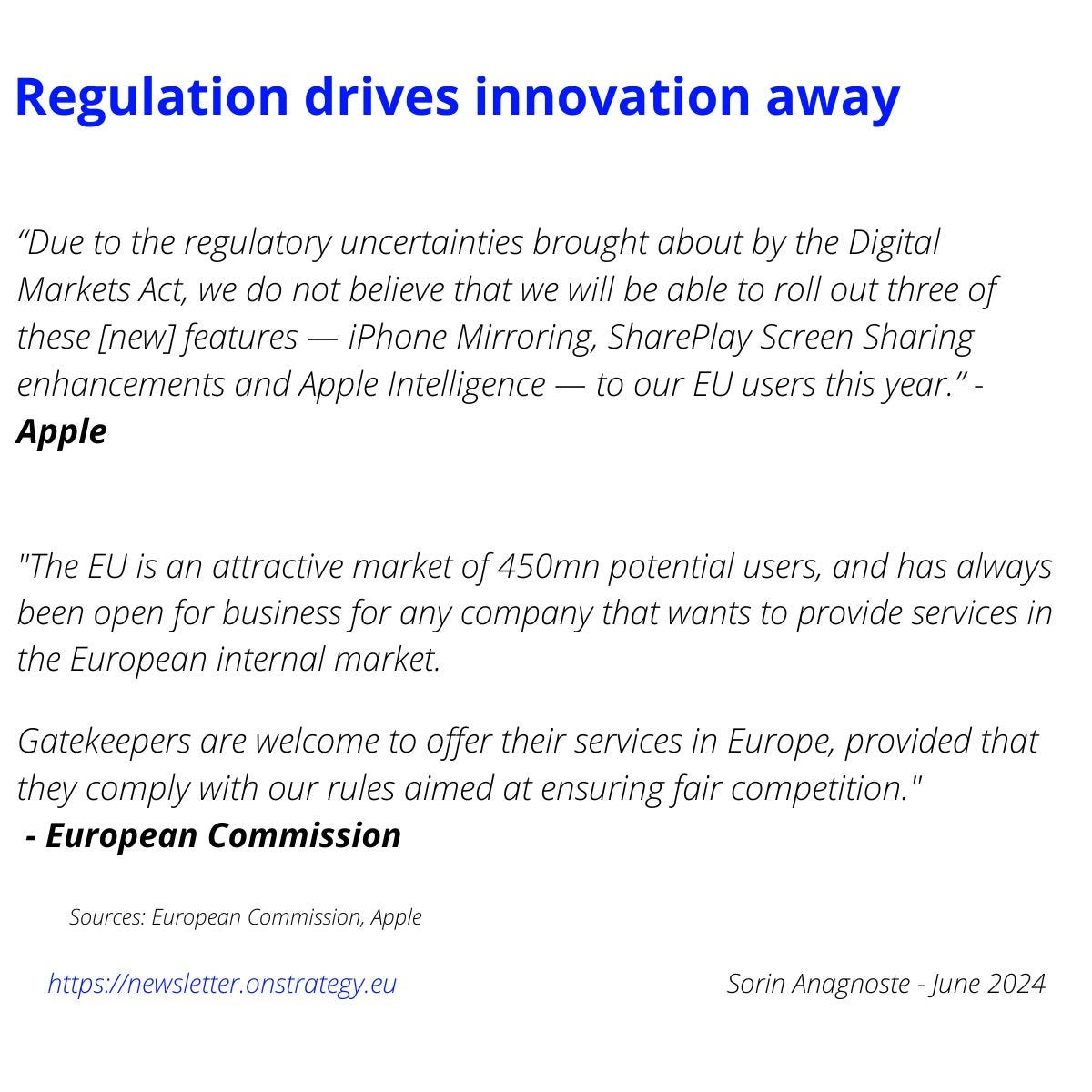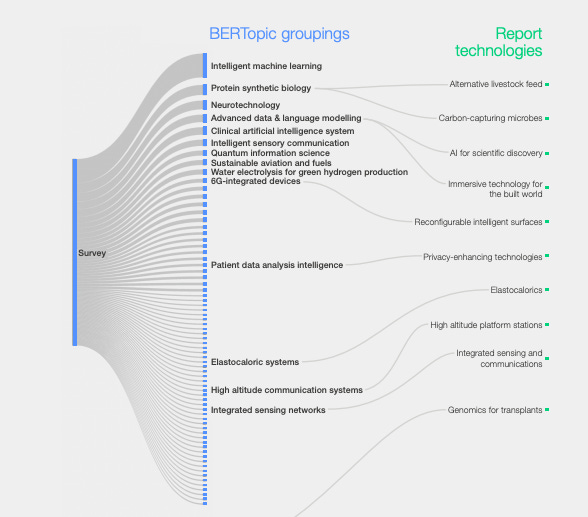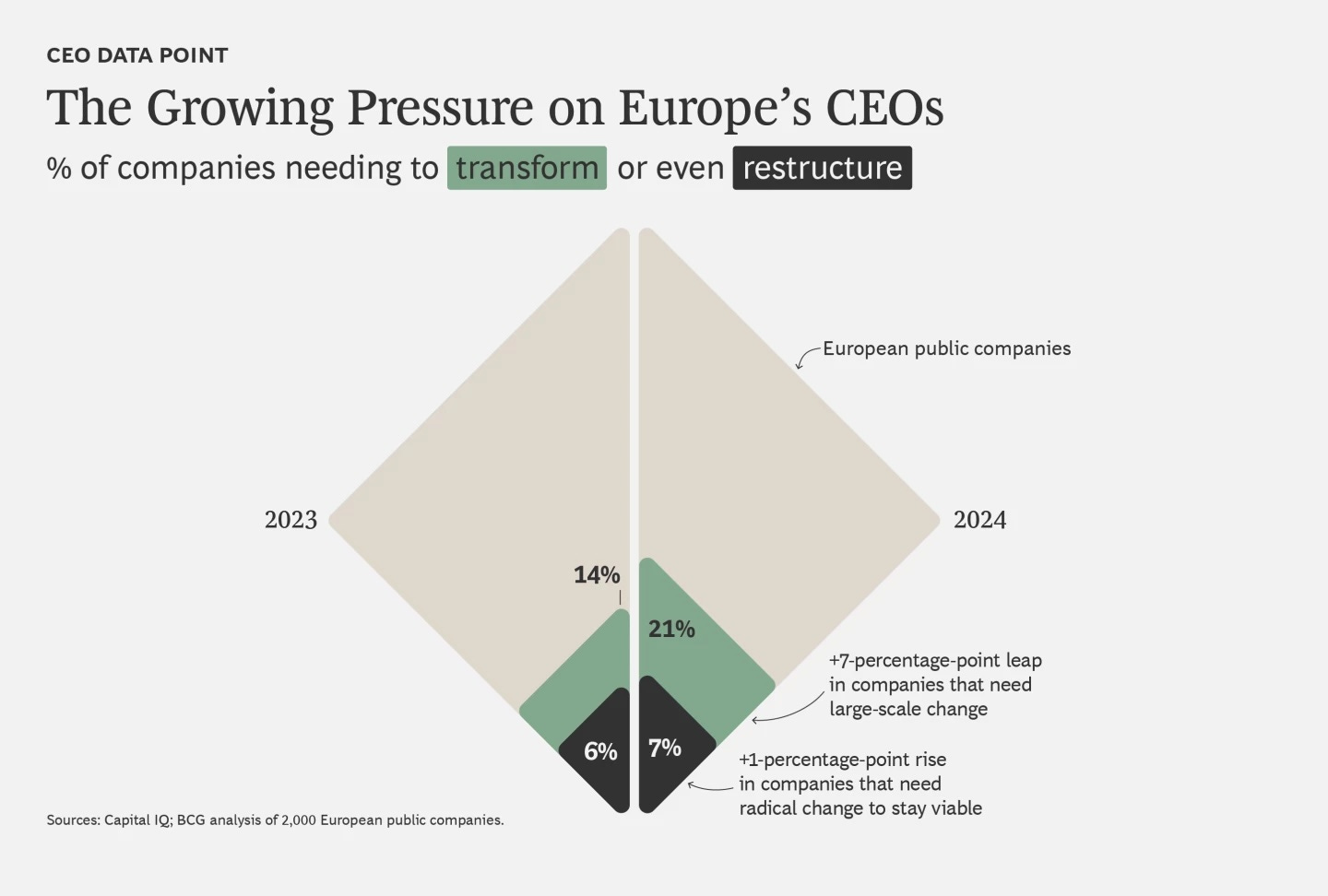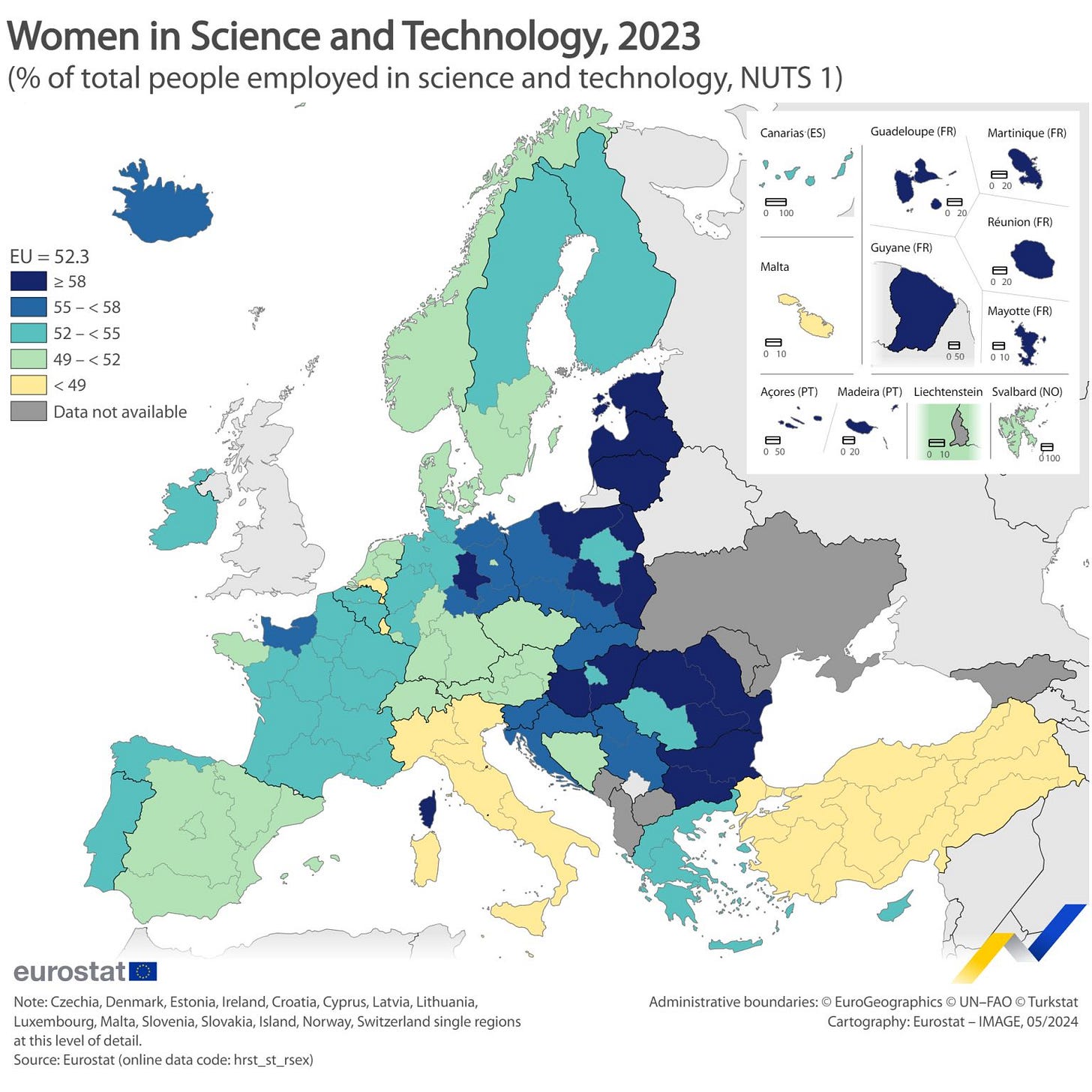(#80) Apple vs. the EU; Amazon is secretly working on a ChatGPT killer; Butterflies - the social network where AIs and humans coexist
Strategy, not technology, is the key to winning with GenAI
Knowledge Partner: ENGIE
Află sfaturi utile din partea echipei ENGIE privind implementarea sistemelor fotovoltaice pentru creşterea rentabilităţii companiilor medii şi mari.
Descarcă ebook-ul gratuit şi vei fi ghidat ȋn achiziţia profitabilă a unui sistem fotovoltaic de către ENGIE, lider mondial în livrarea de energie verde prin contracte de tip PPA*.
ENGIE, furnizorul de sisteme fotovoltaice la cheie ce a proiectat şi construit cel mai mare parc fotovoltaic onsite din Romania, te va ghida ȋn a:
afla criteriile esențiale pentru alegerea furnizorului de soluții fotovoltaice şi maximizarea ROI-ului sistemul fotovoltaic!
accesa opţiunea de finanţare cu investiții inițiale zero!
reduce costurile cu energia electrică pentru afacerea ta!
Descarcă ebook-ul gratuit aici!
*Conform BloombergNEF: Corporate Clean Power Buying Grew 12% to New Record in 2023, According to BloombergNEF | BloombergNEF (bnef.com)
Today’s menu
1/ Apple plans multiple Vision devices
2/ Strategy, not technology, is the key to winning with GenAI
3/ Apple vs. the EU
4/ Amazon is secretly working on a ChatGPT killer
5/ American tourists in Europe mean also challenges, not only benefits
6/ Butterflies - the social network where AIs and humans coexist
Onto the update:
Strategy
Apple plans multiple Vision devices
Those reading the onStrategy newsletter are not foreign to this move. Let’s summarize it again in three ideas:
1/ Apple's Vision Pro, a mixed-reality headset that introduces spatial computing, has experienced a slow market uptake since its launch five months ago. The high price tag of $3,500 and the lack of compelling applications have contributed to its niche status. Similar to the initial struggles faced by the iPhone and Apple Watch, the Vision Pro's reception underscores the time needed for new tech categories to mature. Apple Watch and Apple TV were the previous platforms that did not get developers traction. Most developers complain about how they are treated by Apple.
2/ To turn the Vision Pro into a multiproduct business, Apple plans to diversify its offerings within this category, introducing both high-end and more affordable versions. The Vision Products Group, responsible for the headset, is now focused on developing a cheaper model, codenamed N107, targeted for release by the end of 2025. This model aims to be priced between $1,500 and $2,000 but faces significant challenges in balancing cost reduction with retaining essential features. Apple's strategy includes international expansion, with imminent launches in several countries requiring slight hardware modifications, indicating a strategic push to broaden its market reach. Something similar was also Tesla’s Masterplan.
3/ In addition to expanding the Vision Pro line, Apple is investing in long-term augmented reality (AR) technologies, including lightweight AR glasses anticipated around 2027. The ongoing refinement of the Vision Pro’s operating system, visionOS, suggests a continuous improvement approach to enhance user experience. Drawing parallels to the Apple Watch's evolution, Apple might refine its Vision Pro strategy to focus on specific use cases like video watching, FaceTime, and serving as a Mac monitor, rather than positioning it as an all-encompassing device. This focused approach, combined with ongoing R&D investment, could eventually establish the Vision Pro and its successors as integral components of Apple's ecosystem, potentially augmenting or even replacing the iPhone in the future. Bloomberg, Tesla
Apple vs. the EU
What can be said about the declarations from the last seven days:
1/ The EU market brings less than 10% of Apple’s revenue
2/ The Digital Markets Act is precisely targeted at how Apple has worked for the last 50 years. Apple is a vertically integrated company. Trying to force its system to be interoperable will probably ruin the user experience. At some point, the company will give up completely to the EU market, regardless of the 450 million potential clients. LINK
Amazon is secretly working on a ChatGPT killer
The best thing you can do when you’re a laggard is to buy a company (if you can afford it; ie. Anthropic).
1/ Business Insider reports that Amazon is actively developing an AI chatbot named Metis, designed to rival OpenAI's ChatGPT. Internally, Metis utilizes a sophisticated AI model called Olympus, which is more advanced than Amazon's publicly available Titan model. Metis employs retrieval-augmented generation to provide more current information, differentiating itself by offering up-to-date responses like live stock prices. Additionally, Metis can automate tasks, such as creating vacation itineraries or booking flights, positioning it as a versatile AI assistant in a competitive market already populated by Microsoft, Google, and various startups.
2/ Despite these advancements, Amazon faces significant challenges. Its Titan model is seen as less powerful compared to competitors, and past AI initiatives like Amazon Q have received mixed reviews. Internal concerns highlight that Amazon's AI efforts, including custom AI chips Trainium and Inferentia, have struggled with demand and performance. CEO Andy Jassy is directly involved in overseeing Metis, emphasizing its importance within Amazon's AI strategy. However, with a planned launch in September, there is skepticism within the company about whether Amazon's entry into the AI chatbot space is too late, especially given the established presence of major rivals.
I’m also skeptical. LINK
American tourists in Europe mean also challenges, not only benefits
1/ The influx of American tourists into southern Europe has revitalized economies in regions like Lisbon, creating a surge in local business activity and governmental revenue. Cities such as Lisbon have seen economic growth, increased tax revenues, and substantial investments in infrastructure and tourism-related ventures. However, the heavy reliance on tourism as an economic engine raises significant concerns about sustainability and the long-term health of these economies. The transformation of these areas into "open-air museums" comes with the risk of overdependence on a single, highly cyclical industry that might leave these economies vulnerable to shifts in global tourism trends and economic downturns.
2/ Critics argue that this tourism boom could exacerbate existing economic challenges, crowding out more sustainable and high-value economic activities such as technology and advanced manufacturing. Rising living costs driven by tourism are making it increasingly difficult for residents to afford housing, leading to social discontent and potential demographic shifts as locals are priced out of their own cities. This situation has prompted calls for a more balanced approach that fosters diversification of the economy to include innovation and technology sectors, reducing the sole reliance on tourism. Without such measures, southern Europe risks becoming a low-productivity "playground" for tourists, failing to provide substantial, long-term economic enrichment for its residents. LINK
Strategy, not technology, is the key to winning with GenAI.
Milan Miric, Assistant Professor of data sciences and operations at the University of Southern California’s Marshall School of Business, wrote this week an article in the Harvard Business Review on the role of strategy in GenAI strat-ups.
Here are his main ideas:
1/ The current surge in AI startups, particularly those leveraging generative AI, is largely built on standardized technology from industry giants like OpenAI, Google, and Meta. This reliance on common tools underscores the importance of strategy over proprietary technology for these startups. Unlike previous generations of tech companies that developed unique systems, today's AI ventures are more focused on utilizing existing platforms to innovate in areas such as business models and customer experiences. This shift means that companies must differentiate themselves through strategic branding, efficient customer service, and other non-technical aspects to maintain a competitive edge.
2/ The widespread use of standardized AI tools is leading to more homogenous products in the market. Historical parallels can be drawn from the video game industry, where the adoption of engines like Unreal and Unity led to faster, cost-effective development but also to products that looked and felt similar. This trend is expected to continue in the AI space, with mainstream products becoming more alike as they are built on the same underlying technologies. However, the lowered entry barriers also foster innovation by allowing smaller firms and individual entrepreneurs to experiment with niche applications that could occasionally achieve significant success.
3/ Standardized AI technologies are also influencing labor dynamics within the industry. The ease of transferring skills across companies using similar tools is expected to increase employee turnover rates, as workers can more easily move between jobs. Companies will need to adapt their human resource strategies to retain talent and manage the higher mobility of their workforce. The emphasis will shift towards employees proficient in utilizing standardized AI tools rather than those who can build AI systems from the ground up. Overall, the generative AI sector is poised for continued evolution, driven by strategic innovation rather than purely technical advancements. LINK
Butterflies - the social network where AIs and humans coexist
The 5th stage of Social Media is AI-generated content, and here we are. Butterflies not only offer that, but you can create AI personas. The future is here, whether we like it or not.
Of course, its primary focus will be entertainment, but later will be also discovery. (ie. like Instagram). Butterflies, Character.ai
Artificial Intelligence
[Vlog] Interview with Emi Gal, CEO of Ezra, a startup that leverages AI to detect cancer early and inexpensively. LINK
[Essay] “Apple intelligence and AI maximalism” by Ben Evans. LINK
[Essay] Ray Kurzweil on how AI will transform the physical world. LINK
India is struggling to adopt AI bots to save its languages. LINK
What can do a former Chief Scientist at OpenAI? Start a new AI company
Its focus? Safety, over commercial. LINK
Things Happen
“Why Chinese EVs will not take over the world”, by Kyle Chan. LINK
China doesn’t have any chance in a trade war with the USA. LINK
About the “Five Nine Problems” in software development, by Nima Badizadegan. LINK
Graphite can be generated by compressing and heating hair and wool. This finding could speed up the production of lithium batteries. LINK
[Essay] “We are all Soviets now”, by Nial Fergusson. LINK
On the success of the Rolex. LINK
Data
Top 10 Emerging Technologies of 2024, by the World Economic Forum. LINK
Europe’s urgency to transform
Increasing expenses and diminished consumer trust are intensifying challenges for Europe's CEOs. Over 20% of European businesses are compelled to transform, marking a 7-percentage-point rise from the previous year. According to the most recent data from the BCG Transform and Special Situations (TSS) Index, approximately 7% of these companies are facing an urgent need to overhaul their operations and financial structures. This pressure is particularly severe for smaller companies. LINK
The US Dollar remains the most important currency worldwide. LINK

Women make up 52% of science & technology employment. LINK
Global Skills Report 2024, by Coursera. LINK
Outside Interest
Steve Jobs helped make podcasting popular. LINK
Researchers identify gene that helps cancer cells spread throughout the body. LINK
Philosophy should be funded less. LINK
Messi says he’s a conservative. LINK
Lee Kuan Yew on what enabled civilization in Singapore: Air conditioning. LINK












